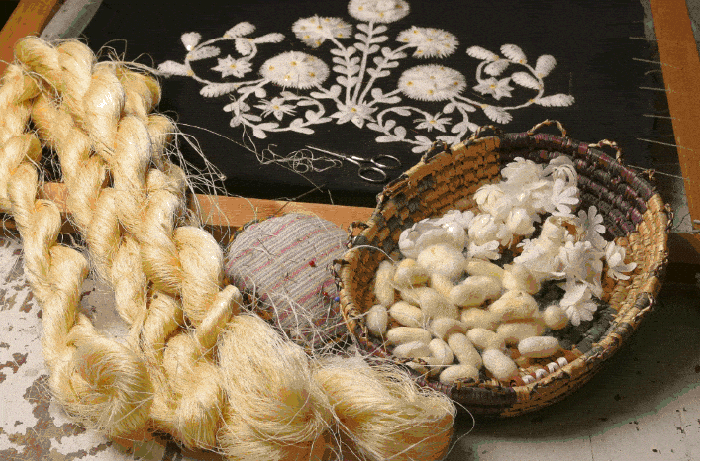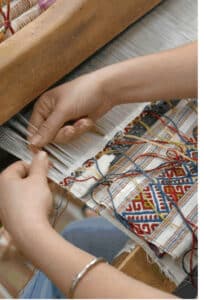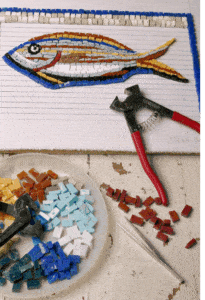AI cannot replicate human artistry
By Ramona Livera and Anna Georgaka
On October 27, 2023, the European Commission published Regulation 2023/2411, a game-changer for geographical indications in craft and industrial products.
Effective since November 16, 2023, this regulation offers robust EU protection, safeguarding the intellectual property rights of registered geographical indications. Coming into full force in the EU from December 1, 2025, the regulation builds upon established frameworks in place since 1992 for protecting geographical indications for wines, spirits and other agricultural products.
The new EU Regulation includes products, (a) produced either entirely by hand or with the aid of manual or digital tools, or by mechanical means, whenever the manual contribution is an important component of the finished product; or (b) produced in a standardised way, including serial production and by using machines. Such products are amongst other natural stones, textiles, jewellery, porcelain and woodwork, providing protection for their names.
The geographical indication for craft and industrial products shall protect against (a) any direct or indirect commercial use of the geographical indication in respect of products not covered by the registration and where the use of the name exploits dilutes or weakens the reputation of protected geographical indication, (b) any misuse, imitation of the name protected under geographical indication( c) any false or misleading indication as to the origin of the product that is used on packaging and (d) any other practice liable to mislead the consumer as to the origin of the product.
The process for registering and protecting Geographical Indications (GIs) involves a two-step procedure: a national phase and a European Union level decision. Each member state designates a competent authority to receive and examine applications. If the application meets requirements, it’s published for opposition. If accepted nationally, the application goes to the European Intellectual Property Office (EUIPO) for an EU-wide check and opposition period. Member states without a national system can seek a derogation for the EUIPO to handle applications directly, skipping the national phase if low local interest is demonstrated.
Implications for Cyprus
The Republic of Cyprus currently does not provide for the protection of geographical indications for craft and industrial products at national level. Therefore, the existence of a harmonised union protection for non-agricultural products is essential for preventing infringements of intellectual property rights in relation to craft and industrial products.
Additionally, the implementation of the geographical indications for non-agricultural products constitutes an incentive for investment in traditional crafts. Further, the regulation will encourage and elevate quality of work amongst producers and encourage healthy competition for traditional crafts. Consequently, uniform protection throughout the EU for intellectual property rights related to geographical indications can create incentives for the production of quality products and contribute to the fight against counterfeiting. Intellectual property rights related to geographical indications will help operators and companies to add value to their intangible assets.
Therefore, it is anticipated that geographical indications shall protect craft products produced in Cyprus such as: Lefakara village lace, basketry produced in the villages Liopetri , Mesogi, Livadia and Troulloi, weaving produced in the village of Fiti in Paphos, metallurgy in the villages of Lefkara, Lefkonico. Milia, leatherworks in villages of Pedoula, Gyalia, Psimolophou and Aradippou and pottery in villages of Fini, Kornos, Ayios Demetrios and Kaminaria
Can AI replicate human craftmanship?
The EU has proposed a legal framework to regulate artificial intelligence (AI) in the union, aiming to better conditions for the development and use of this innovative technology.
Although the upcoming AI legislation is poised to reshape the future of technology industries, there remain inherent aspects of human craftsmanship that technology simply cannot replicate. This includes elements of creativity, intuition and emotional connection that are intrinsic to a craftsman’s work and not replaceable by digital products. These elements play a crucial role in creating meaningful experiences that have lasted centuries, without losing their value. Therefore, amidst this AI’s technological revolution, human craftsmanship continues to stand out in specific areas.
Despite AI’s notable advancements across various fields and its ability to handle numerical computations and repetitive tasks, it falls short in thinking outside the box, in experimenting and in innovating. Moreover, AI robotics are unable to emulate the emotional connection and storytelling that craftsmen bring to their work. When a craftsman creates an exhibit, they go beyond assembling materials – they tell a story, evoke emotions, and craft experience that deeply resonate with visitors.
Consequently, handcrafted products hold significantly greater value compared to their digitally produced counterparts. As such, the worth of handcrafted products not only remains resilient over time but tends to appreciate, in contrast to digitally produced products whose value diminishes as technology advances.
The EU’s geographical indication regulation recognises the importance of manual contribution in a finished product, highlighting the irreplaceable aspects of human artistry that extend beyond the capabilities of AI.
While the AI legislation aims to shape the future of technology, the regulation for geographical indications complements this by emphasising the enduring value of handcrafted products and the protection of their intellectual property rights against commercial misuse and dilution. Together, these legal frameworks promote a balanced approach that acknowledges the distinct qualities of both human craftsmanship and artificial intelligence.
Ramona Livera and Anna Georgaka are lawyers at Elias Neocleous & Co LLC











Click here to change your cookie preferences